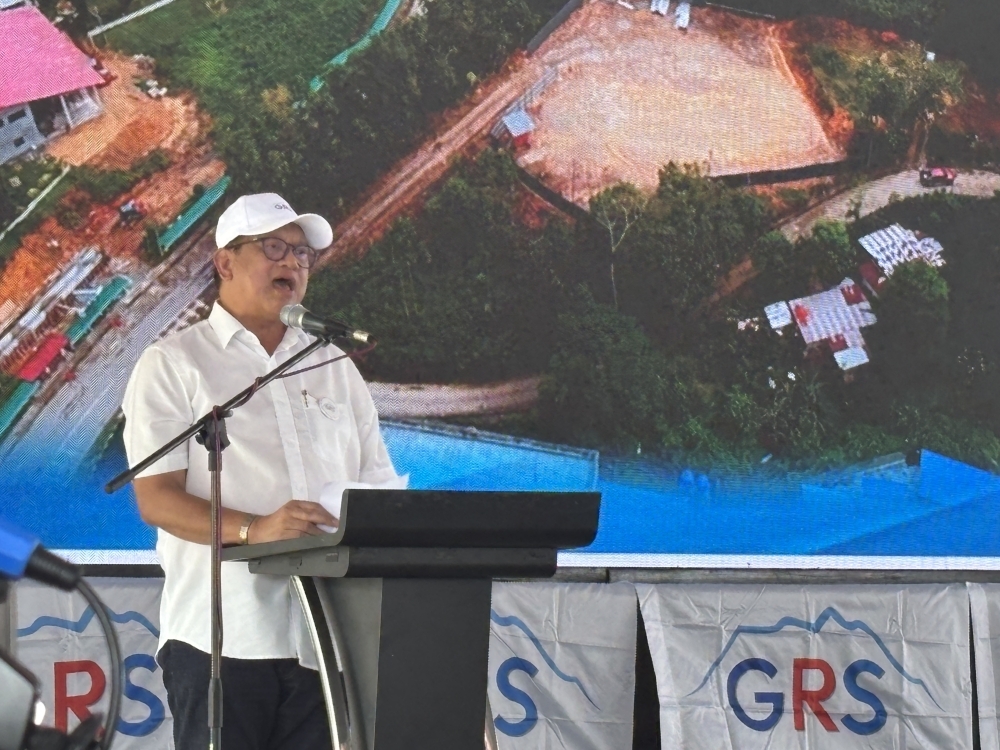GRS or chaos? PBS info chief warns multi-cornered fights show KDM unity is just rhetoric

KOTA KINABALU, Nov 25 — Calls from Kadazan, Dusun and Murut (KDM) based parties for unity is meaningless political rhetoric if parties insist on contesting elections independently, Parti Bersatu Sabah (PBS) information chief Datuk Joniston Bangkuai said.
He said that the various parties were already part of the localised alliance Gabungan Rakyat Sabah (GRS) in an effort to prioritise real coalition-building over solo ambitions.
“Talking about KDM unity is pointless if every party wants to go solo. All these individual parties are contesting on their own. So where are we going with this?” he asked.
He pointed out that in the Kiulu constituency where he is the incumbent, there were eight candidates including those from the other KDM based parties
Bangkuai said that PBS chose to remain committed to GRS as the only path to meaningful unity that would benefit Sabah.
“For PBS, we remain in GRS because we believe in uniting all local parties under one umbrella. That is how Sarawak is organised, and this is what Sabah needs.” he said.
He dismissed criticisms of being at the mercy of the federal forces, highlighting the results-driven approach of GRS compared to past governments compared to PBS’s own past experience of being an opposition state government to the federal government in 1985 to 1994.
He said that during PBS’s long history in Sabah, they had succeeded in raising awareness about Sabah’s rights, including the 20 per cent oil royalties that should have been given and the 40 per cent return of state revenues, but tangible results were limited.
“Now, the approach taken by GRS has shown results. A good example is the special grant given. We got RM23 million during PBS’s time, RM53 million during Warisan’s time, and now RM600 million under GRS.
“So you tell me, sapa yang kena picit?” he said, turning to colloquial Malay to ask who is being squeezed.
With days to polling on November 29, some voters have questioned PBS’ decision to remain a component member of GRS — not the coalition itself, but the perceived uneven ties to the federal unity government, particularly Pakatan Harapan (PH).
Prominent KDM leader and PBS founder Tan Sri Joseph Pairin Kitingan had also alluded to his wishes that Sabah’s government be formed by all local parties without the inclusion of any national party.
Parti Solidariti Tanah Airku (STAR) and United Progressive Kinabalu Organisation (Upko) are two of the KDM parties which very recently left GRS and PH respectively citing a power imbalance and Putrajaya’s lack of compromise when it came to Sabah’s interests.
However, the presidents of STAR and Upko respectively Datuk Seri Jeffrey Kitingan and Datuk Ewon Benedick recently said that they were “united in their struggle” despite contesting against each other.
PBS, historically Sabah’s oldest political party, is one of the two remaining KDM based parties in alliance with a national party, the other being Parti Bersatu Rakyat Sabah (PBRS) which is part of the Barisan Nasional coalition.
Bangkuai took STAR and Upko to task for quitting instead of talking things through with their partners to find a solution together.
“We were already united in GRS. They are the ones who decided to leave. The onus is on them. What should have been done was to sit down and strengthen the coalition. Instead, they chose to go solo,” he said.
The result is multiple cornered fights in every seat, with the KDM majority seats particularly susceptible to splits.
Addressing related concerns about Peninsula-based parties like PH who are GRS’s partners in the caretaker government which Bangkuai said they had the democratic right to contest, just like Sabah based parties who contested in the peninsula.
“It’s their right to contest. If Sabahans reject them, that’s it. If Sabahans continue to support them, what can we do?
“But what is important for PBS is that a local party has to be dominant. So we have to strengthen GRS to do so because because we have various parties in there. But mark my words. I do believe that on the night of the 29th and after, all these parties will come calling, that is my take,” he said.

